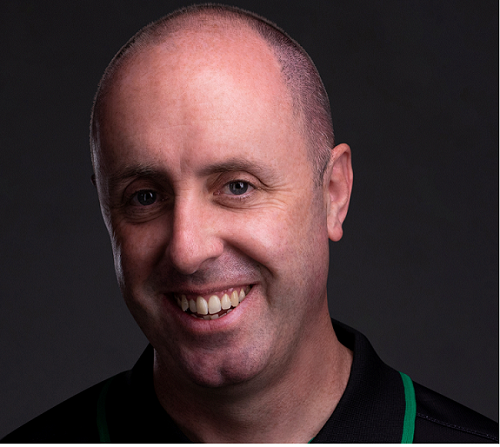Our People In CAMHS Services
5 Minutes With Mark Smyth, Team Coordinator and Senior Clinical Psychologist
 How does your day start?
How does your day start?
I’m a Team Coordinator as well as a Senior Clinical Psychologist so my day usually starts with checking emails to see if anything urgent has come in that I need to plan how I or the team will need to respond to. Depending on what’s come in I’ll try to prioritise time in my diary for the things that can’t wait like emergency referrals, escalation of risk for young people on the waiting list or phone calls back to parents worried about their young person.
Tell us about the team you work with.
I’ve worked in CAMHS for 20 years & the majority of this has been with Swords CAMHS in North Dublin. I’m really lucky to work with a wide range of colleagues in occupational therapy, social work, psychiatry, nursing, speech & language therapy and dietetics. We’re working with a lot of risk & complexity so having such diverse experiences & professional perspectives helps to ensure that we can understand a young person’s mental health from a wider variety of perspectives and offer a wider range of evidence based interventions to meet their varied needs.
What does your typical working day involve?
My day is mixed between team coordinator and psychology roles. I screen all the referrals that come in each day, attend the team and referrals meeting, allocate new cases, manage the waiting list and plan the emergency rota slot each week. I also return calls to parents / referrers about referrals or wait times. In my psychology role I carry a clinical caseload and meet young people & their parents every day to understand (assess) their initial & ongoing needs & risk and work therapeutically with them to achieve their goals for their mental health recovery.
What motivates you in your work?
It’s not that hard to be motivated to do this work. You’re motivated to see young people as quick as you can so they don’t have to wait too long. Once you see them and you understand & connect with the pain they’re experiencing, often overwhelming levels of pain, the motivation to want to help them overcome & manage their pain comes naturally.
What do you enjoy most about your role?
I enjoy getting to be a small part in time of a young person’s life, usually when they’re in a vulnerable place. It’s a never ending privilege that they allow me to be part of their journey & they trust me to share their innermost fears. I enjoy walking the path of recovery alongside them and celebrating with them when they’ve grown in confidence, independence & are ready to leave CAMHS having achieved the goals they doubted they’d ever be able to achieve.
What advice would you give someone considering a career in CAMHS?
Talk to someone who works in CAMHS, come in and meet a clinician and explore what they do & why they do it, you might find it will challenge any assumptions about what the role or work actually involves. If you enjoy a challenge, learning and building on how you adapt your skills for the huge variety of work you will do & are seeking high job satisfaction from direct clinical work then this is the place for you.